Carl E. Olson's Blog, page 200
August 23, 2012
Planned Parenthood, Serious About Profit, Not Women's Health
the Bottom Line, Says Former Employee | Carrie Gress | Catholic World Report
AUG. 23, 2012 – Profits take
president over women's health when it comes to Planned Parenthood's focus, says
a former employee of the abortion giant.
As the country finds itself
in crosshairs of the "war on women," a former Planned Parenthood
employee, Susan Thayer, tells the real story of what goes on behind the closed
doors of the "pro-women" clinics.
Thayer worked as a clinic
director for Planned Parenthood in Iowa for 17 years before she joined the
pro-life cause, only to see the very clinic she worked at close after the 40 Days For Life Campaign she
initiated.
Q: Planned Parenthood markets
itself as a health resource for women that provides, among other things,
mammograms and other forms of cancer testing. Their website boasts of providing
750,000 breast exams annually, while abortion only makes up three percent of
their work. The impression is that abortion is really just one of many things
they do there. Is that impression accurate?
Thayer: There has never been
a mammogram done by any clinic in any affiliate. The only cancer screening done
there are pap tests and there are fewer and fewer of those happening with the
decline in clinician availability.
They do offer a range of
services – sexually transmitted infection testing/treatment, pregnancy testing, birth control, etc - but abortion
is their "main event". It's what they do.
Q: How central is abortion to Planned
Parenthood's mission and bottom line?
Lessons from Catholic Evangelists

Lessons from Catholic Evangelists | Jim Graves | Catholic World Report
Five prominent Catholic apologists share their methods of spreading the Good News and defending the Faith.
In a meeting last
year with Church leaders involved in the New Evangelization, Pope Benedict XVI said,
“Today’s world needs people who proclaim and testify that it is Christ who
teaches the art of living, the way of true happiness, because he himself is the
path of life.”
“Dear friends,
being evangelizers is not a privilege but a commitment that comes from faith,”
the Holy Father continued. “To the question the Lord addresses to Christians: ‘Whom
shall I send and who will go for us?’, answer with the same courage and the
same trust as the Prophet: ‘Here am I! Send me’ (Isaiah 6:8).”
While some are
called to be missionaries in foreign lands, for most of us, evangelization of
inactive or non-Catholics begins in our own homes and communities. CWR recently
spoke with five prominent Catholic evangelists, who offered suggestions to
Catholics on ways they can evangelize those they encounter day-to-day.
Austen Ivereigh lives outside of London, England, and
is coordinator of the apologetics/evangelism apostolate Catholic Voices. Catholic Voices
began in 2010, coinciding with Pope Benedict XVI’s visit to the UK. It now
operates in six countries, including the United States. Its initial purpose was
to assemble a speakers’ bureau of articulate young Catholics who could
effectively present Catholic teaching in the media on contentious issues. Due
to its success, the initiative has continued, training additional speakers,
giving workshops, and publishing two books.
“In Catholic Voices, we have developed a
method of ‘reframing’ contentious issues so that people don’t shut down,”
Ivereigh said.
One must first understand
the “frame” that secular society has on Catholic teaching, “which usually
involves the Church seeking to ‘impose’ its view,” he said. One should
recognize if there is any positive value behind the criticism of the Church
that may have been exaggerated at the expense of other equally important
values.
20% off new, recently released books and films, through Aug. 28th

20% off New and Recently Released Books and Films!
Great new releases are now available from Ignatius Press including Mark: Meditations on the Gospel of Mark, The Autobiography of a Hunted Priest and The Confessions: Saint Augustine of Hippo.
Ignatius Press has historical, inspirational and educational stories
for all ages. And don't forget to check out our new DVDs! They showcase
equally inspirational and educational themes as our books do such as Cosmic Origins, The Culture of Life and Padre Pro, only in a different format. Get any or all of the titles offered below at 20% off!
There
are only two weeks left in the Ignatius Press Summer Sale. Make sure to
take advantage of these great prices before it's too late! (To see the
entire list of sale items, click here.)
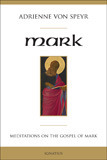 Mark
Mark
Meditations on the Gospel of Mark
Adrienne von Speyr
These meditations on the Gospel of Mark, with the exception of the
second part on the Passion, were given by Adrienne von Speyr between
1945 and 1958 to members of the Community of St. John, which she founded
with the renowned theologian, Fr. Hans Urs von Balthasar. Adrienne is
speaking to young adults who have decided to live the state of the
evangelical counsels in a secular profession, as part of a recently
established secular institute. Nevertheless this contemplative
commentary can be very useful for all who seek to meditate on Holy
Scripture.
Regular price: $31.95, sale price: $25.56
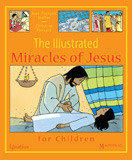 The Illustrated Miracles of Jesus
The Illustrated Miracles of Jesus
Jean-Francois Kieffer, Christine Ponsard
Selected stories of the many miracles by Jesus from the Gospels
are told in a youthful yet tasteful comic-book style art. The simple
words, the loving actions of Jesus and beautiful, brightly colored
illustrations will captivate children whether they read the book on
their own or with their family.
Regular price: $14.99, sale price: $11.99
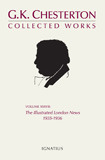 The Collected Works of G.K. Chesterton, Vol 37
The Collected Works of G.K. Chesterton, Vol 37
The Illustrated London News, 1935-1936
G. K. Chesterton
This volume contains all of G.K. Chesterton's columns in The
Illustrated London News from 1935 to 1936. This book is the last of The
Illustrated London News volumes. It includes a subject index which
covers all the The Illustrated London News volumes (27-37).
Regular price: $24.95, sale price: $19.96
Also available in Hardcover
Regular price: $39.95, sale price: $31.96
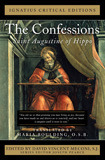 The Confessions: Saint Augustine of Hippo
The Confessions: Saint Augustine of Hippo
St. Augustine
The Confessions of Saint Augustine is considered one of
the greatest Christian classics of all time. It is an extended poetic,
passionate, intimate prayer that Augustine wrote as an autobiography
sometime after his conversion, to confess his sins and proclaim God's
goodness. This acclaimed new translation by Sister Maria Boulding,
O.S.B., masterfully captures his experience, and is written in an
elegant and flowing style
Regular price: $14.95, sale price: $11.96
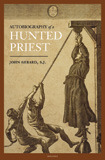 Autobiography of a Hunted Priest
Autobiography of a Hunted Priest
John Gerard S.J.
Truth is stranger than fiction. And nowhere in literature is it so apparent as in this classic work, the Autobiography of a Hunted Priest.
More than the story of a single priest, this book epitomizes the
constant struggle of all human beings through the ages to maintain their
freedom. It is a book of courage and of conviction whose message is
most timely for our age.
Regular price: $17.95, sale price: $14.36
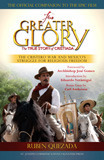 For Greater Glory: The True Story of Cristiada
For Greater Glory: The True Story of Cristiada
Ruben Quezada
The new major motion picture, For Greater Glory: The True Story of
Cristiada tells the epic tale of Mexico's heroic struggle for religious
freedom in a little-known conflict called the Cristero War – but many
questions still remain. Now you'll go much deeper into the exciting
history behind the movie with this fact-filled companion book – and gain
important insight into the on-going fight for religious freedom today.
Regular price: $12.95, sale price: $10.36
Also available in Spanish
Regular price: $12.95, sale price: $10.36
 YOUCAT ESPANOL
YOUCAT ESPANOL
Youth Catechism of the Catholic Church
Christoph Cardinal Schoenborn
Developed with the help of young Catholics and written for
high-school age people and young adults, YOUCAT is an accessible,
contemporary expression of the Catholic Faith. The appealing graphic
format includes Questions-and-Answers, highly-readable commentary,
summary definitions of key terms, Bible citations and inspiring and
thought-provoking quotes from Saints and others in the margins.
Regular price: $19.95, sale price: $15.96
DVDs
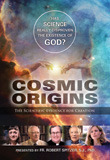 Cosmic Origins
Cosmic Origins
For generations, science has ignored the concept of creation
because doing otherwise would beg the question ... of a Creator. Today,
however, we have compelling evidence - from science itself - for a
beginning and fine-tuning of the universe. The insights are
complementary, and that very fact provides evidence of a transcendent,
intelligent Creator. This fascinating film features Fr. Spitzer and a group of physicists and academic heavyweights exploring modern scientific theories about how the universe came to exist.
Regular price: $19.95, sale price: $15.96
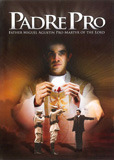 Padre Pro
Padre Pro
Blessed Miguel Pro - Martyr of Mexico
This movie is the inspiring story of the famous Father Miguel Pro,
S.J., who was executed in Mexico in 1927 for the crime of being a
Catholic priest. This powerful movie makes history come alive and
highlights the dramatic conflict between the Church and her enemies that
continues even to this day. An inspiring film for the whole family,
this is an incredible true story of a modern Catholic hero who
proclaimed both in life and death the reign of Christ the King.
Regular price: $14.95, sale price: $11.96
 The Life of Leonardo da Vinci
The Life of Leonardo da Vinci
Who was Leonardo da Vinci, and what are the secrets behind his
genius? This landmark film offers an exciting look into the mystery,
myth, and genius of this once-a-century figure. Lavishly shot with a
cast of hundreds in many of the actual locations where da Vinci lived,
worked, and dreamed, The Life of Leonardo da Vinci is a complete
immersion into da Vinci's world.
Regular price: $29.95, sale price: $23.96
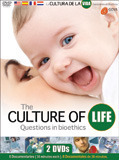 The Culture of Life
The Culture of Life
Questions in Bioethics
In the field of Bioethics, many current challenges are becoming
increasingly pressing, and they call out for clear answers from
scientific and ethical points of view. These programs demonstrate that
"The Culture of Life" harmoniously blends scientific progress with a
respectful approach vis-a-vis human suffering.
Regular price: $29.95, sale price: $23.96
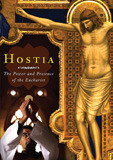 Hostia
Hostia
The Power and Presence of the Eucharist
This powerful and inspiring film begins with the Gospel accounts
of how Jesus Christ instituted the Eucharist. It explains how the
sacrifices and offerings in the Old Testament prefigured the perfect and
final sacrifice in Jesus Christ Himself--the Lamb of God who takes away
the sin of the world. The constant belief of Christians in the Real
Presence throughout history is clearly demonstrated along with examples
of heroic witnesses for the faith.
Regular price: $19.95, sale price: $15.96
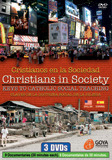 Christians in Society
Christians in Society
Keys to Catholic Social Teaching
This series illustrates, with images of striking impact, the
essence of Christian responses to the conflicts posed within our global
society. Beyond mere entrepreneurial ethics, all aspects of a person's
life are addressed, from political and family contexts to workplace and
business environments.
Regular price: $29.95, sale price: $23.96
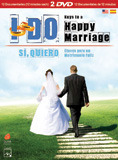 I Do
I Do
Keys to a Happy Marriage
Addressed to all those aiming to marry in the Catholic Church, and
to those already married who aspire to stay so. With an original
approach and attractive images, these documentaries feature the
experiences and advice of over 30 experts from five continents. They
bring together the skills of psychiatry, psychology, gynecology,
theology, canon law, and matrimonial ethics.
Regular price: $24.95, sale price: $19.96
Catholic World Report and Homiletic & Pastoral Review
Whence Come These Puppets of Doom?
by John B. Buescher
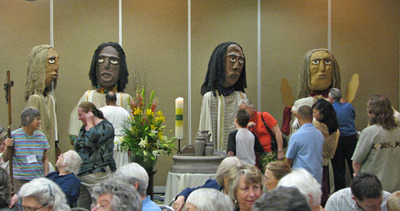
“Liturgical puppets” have
shown up in churches for years, but aren't limited to Catholic
venues—they have long been used as agents of iconoclasm and
revolutionary agitprop.
Sightings of the large, sad variety of “liturgical puppets” go back
some years, and are by no means limited to Catholic venues.
Episcopalians, unsurprisingly, have paraded them down the aisle of St.
John the Divine Cathedral. And St. Michael’s Episcopal Parish in
Litchfield, Connecticut supports the Colossal Puppet Theater Company.
In recent years, puppets have appeared in many denominations’ services.
All of which has elicited enraged incomprehension in some quarters—what
is the point of these visitations into the sanctuary?
The Heart of the Matter
by Bishop Edward M. Rice
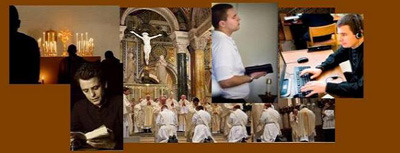
In Pastores Dabo Vobis, Blessed John Paul II offered to those
charged with seminary formation the framework by which to form men for
the priesthood, namely, the four pillars of priestly formation:
spiritual, intellectual, apostolic and human formation.
Seminary programs are guided by the fundamental principles expressed in Blessed John Paul II’s Apostolic Exhortation, Pastores Dabo Vobis,” (I Will Give You Shepherds, PDV) and the Program of Priestly Formation (PPF) of the USCCB. In Pastores Dabo Vobis,
Blessed John Paul II offered to those charged with seminary formation
the framework by which to form men for the priesthood, namely, the four
pillars of priestly formation: spiritual, intellectual, apostolic and
human formation. These four guiding principles operate together with a
beautiful complementarity and interplay, enhancing the desired goals of
each individual pillar. It is important to recognize the goals
specific to each area while appreciating their interdependence.
August 22, 2012
40% off Gene McCaffrey's "Employee Pick of the Week"

40% off Gene McCaffrey's Pick of the Week*
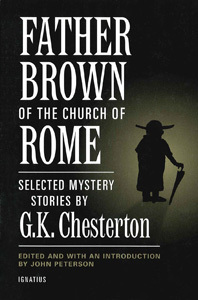 My choice is G.K Chesterton’s
Father Brown and the Church of Rome
.
My choice is G.K Chesterton’s
Father Brown and the Church of Rome
.To me, Fr. Brown is Chesterton at his best – creating entertaining
settings for his wonderful aphorisms. Most writers are preachy when they
are preaching, nothing wrong with that, but it’s difficult to pull off
in a story. Chesterton handles the difficulties with ease, mainly with
his characters, who behave in surprising but characteristic ways. His
stories are a sort of sophisticated Brothers Grimm, spinning fables of crime that each tell us a little something that is true; this is why Catholics believe this, and
isn’t Fr. Brown a very clever fellow?
This book is sampler, ten choice
stories, and there is plenty more where it comes from. All of Fr. Brown
is worth reading ( to the children too ), and can be read in the
following Collected Works of G.K. Chesterton: Vols. 12, 13: paperback or hardcover and 14 .
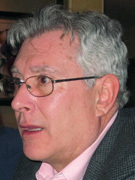
Gene
McCaffrey is the Colorado office manager for Ignatius Press. He is
married to Victoria McCaffrey, founder and proprietress of the Ronald
Knox Society of North America. Gene and Vicki live in Fort Collins, CO,
with most of their nine children and seven grandchildren.
Gene is the
author, for 15 years, of Wise Guy Baseball, an annual guide for fantasy
baseball players. He is also an old and often repentant rock and roll
musician.
*Employee
Pick of the Week program features savings of 40% off a book, movie, or
compact disc personally chosen and recommended by an Ignatius Press
employee. Each week, an Ignatius Press employee will select a favorite
book, movie, or other Ignatius Press product and write a few sentences
about why he/she thinks customers will enjoy the particular selection. A
short bio of the selecting employee will also be included, giving
customers a chance to learn a bit more about the people who are Ignatius
Press
On Blessed Mary, Queen of Heaven and Queen of the World
On this, the Memorial of the Queenship of the Blessed Virgin Mary, a couple of passages from Pope Pius XII's 1954 encyclical, Ad Caeli Reginam,
which proclaimed the Queenship of Mary. First, remarks on some of the
theological reasons, drawn from Scripture and Tradition, that Mary is
recognized as Queen of heaven and earth:
But the Blessed Virgin Mary should be
called Queen, not only because of her Divine Motherhood, but also
because God has willed her to have an exceptional role in the work of
our eternal salvation. "What more joyful, what sweeter thought can we
have" - as Our Predecessor of happy memory, Pius XI wrote - "than that
Christ is our King not only by natural right, but also by an acquired
right: that which He won by the redemption? Would that all men, now
forgetful of how much we cost Our Savior, might recall to mind the
words, 'You were redeemed, not with gold or silver which perishes, . . .
but with the precious blood of Christ, as of a Lamb spotless and
undefiled. We belong not to ourselves now, since Christ has bought us
'at a great price'."
Now, in the accomplishing of this work of
redemption, the Blessed Virgin Mary was most closely associated with
Christ; and so it is fitting to sing in the sacred liturgy: "Near the
cross of Our Lord Jesus Christ there stood, sorrowful, the Blessed Mary,
Queen of Heaven and Queen of the World." Hence, as the devout disciple
of St. Anselm (Eadmer, ed.) wrote in the Middle Ages: "just as . . .
God, by making all through His power, is Father and Lord of all, so the
blessed Mary, by repairing all through her merits, is Mother and Queen
of all; for God is the Lord of all things, because by His command He
establishes each of them in its own nature, and Mary is the Queen of all
things, because she restores each to its original dignity through the
grace which she merited.
For "just as Christ, because He redeemed
us, is our Lord and king by a special title, so the Blessed Virgin also
(is our queen), on account of the unique manner in which she assisted in
our redemption, by giving of her own substance, by freely offering Him
for us, by her singular desire and petition for, and active interest in,
our salvation." (par. 35-37)
And from the conclusion, remarks about the importance of recognizing
and embracing the unique role of Mary in the saving work of her Son:
Let all, therefore, try to approach with
greater trust the throne of grace and mercy of our Queen and Mother, and
beg for strength in adversity, light in darkness, consolation in
sorrow; above all let them strive to free themselves from the slavery of
sin and offer an unceasing homage, filled with filial loyalty, to their
Queenly Mother. Let her churches be thronged by the faithful, her
feast-days honored; may the beads of the Rosary be in the hands of all;
may Christians gather, in small numbers and large, to sing her praises
in churches, in homes, in hospitals, in prisons. May Mary's name be held
in highest reverence, a name sweeter than honey and more precious than
jewels; may none utter blasphemous words, the sign of a defiled soul,
against that name graced with such dignity and revered for its motherly
goodness; let no one be so bold as to speak a syllable which lacks the
respect due to her name.
All, according to their state, should
strive to bring alive the wondrous virtues of our heavenly Queen and
most loving Mother through constant effort of mind and manner. Thus will
it come about that all Christians, in honoring and imitating their
sublime Queen and Mother, will realize they are truly brothers, and with
all envy and avarice thrust aside, will promote love among classes,
respect the rights of the weak, cherish peace. No one should think
himself a son of Mary, worthy of being received under her powerful
protection, unless, like her, he is just, gentle and pure, and shows a
sincere desire for true brotherhood, not harming or injuring but rather
helping and comforting others.
In some countries of the world there are
people who are unjustly persecuted for professing their Christian faith
and who are deprived of their divine and human rights to freedom; up
till now reasonable demands and repeated protests have availed nothing
to remove these evils. May the powerful Queen of creation, whose radiant
glance banishes storms and tempests and brings back cloudless skies,
look upon these her innocent and tormented children with eyes of mercy;
may the Virgin, who is able to subdue violence beneath her foot, grant
to them that they may soon enjoy the rightful freedom to practice their
religion openly, so that, while serving the cause of the Gospel, they
may also contribute to the strength and progress of nations by their
harmonious cooperation, by the practice of extraordinary virtues which
are a glowing example in the midst of bitter trials.
By this Encyclical Letter We are
instituting a feast so that all may recognize more clearly and venerate
more devoutly the merciful and maternal sway of the Mother of God. We
are convinced that this feast will help to preserve, strengthen and
prolong that peace among nations which daily is almost destroyed by
recurring crises. Is she not a rainbow in the clouds reaching towards
God, the pledge of a covenant of peace? "Look upon the rainbow, and
bless Him that made it; surely it is beautiful in its brightness. It
encompasses the heaven about with the circle of its glory, the hands of
the Most High have displayed it." Whoever, therefore, reverences the
Queen of heaven and earth--and let no one consider himself exempt from
this tribute of a grateful and loving soul--let him invoke the most
effective of Queens, the Mediatrix of peace; let him respect and
preserve peace, which is not wickedness unpunished nor freedom without
restraint, but a well-ordered harmony under the rule of the will of God;
to its safeguarding and growth the gentle urgings and commands of the
Virgin Mary impel us.
Earnestly desiring that the Queen and
Mother of Christendom may hear these Our prayers, and by her peace make
happy a world shaken by hate, and may, after this exile show unto us all
Jesus, Who will be our eternal peace and joy, to you, Venerable
Brothers, and to your flocks, as a promise of God's divine help and a
pledge of Our love, from Our heart We impart the Apostolic Benediction.
(par. 48-52)
And here is a passage from The Way of the Disciple, by Erasmo Leiva-Merikakis, about the Scriptural foundations for the Queenship of Mary:
A major aspect of the mystery of the
Incarnation is that, starting from the central doctrine of
Christ's true, full, and irreversible humanization, we may then
infer a number of important truths that need not be explicitly
spelled out in Scripture, since they are really contained within the
fullness of the already revealed central Mystery of Christ. For
instance, the normality of Jesus' hidden life and childhood: by
their nearly total silence concerning this part of Jesus' earthly
life, the Gospels are in fact telling us that Jesus lived a very
ordinary human life for nearly thirty years, almost the whole of
his earthly existence.
Something similar may be said about his
relationships. Scripture nowhere calls Mary explicitly either
"Lady" or "Queen", titles which the Catholic tradition has
joyfully ascribed to her since very ancient times. But Scripture
is full of allusions to queens who are mothers of kings, and Scripture
also tells us that Mary is the Mother of Christ who is eternal
King of the ages. Therefore, if Mary is the Mother of our Lord (Dominus), then she is truly "our Lady" (Domina),
and if Christ is King, then she, too, must be Queen, for this is
required by the very nature of these biblical titles, which are
relational in nature. What are we to call the mother of a king if
not the "queen mother", and what would be the point of calling
Jesus a king at all if, although he very much has a mother, we oddly
want to limit the implications of that title by applying it only
in one direction, that is, by stressing the fact that a king has
subjects who must obey and serve him, but not as well that he has
a mother to whom he owes his human life and who stands by his
side, always supporting him and loving him in all his works and
decrees?
And Christ does not disdain so to share
his lordship and kingship, because he did not disdain to lay
aside even his divine glory in order to share our nature. if he
had, he would not have become man in the first place and entered
this necessary nexus of relationships. Christ is not a sealed eternal
capsule fallen to earth ready-made from heaven. Christ is the seed
of the Word planted by the Father in the womb of Mary, that
fertile earth that gave nourishment and growth to the seed of the
Word, that we may eventually eat of the fruit of the Tree of the
Cross.
When the time had fully come, God sent forth his Son, born of woman, born under the law, to redeem those who were under the law, so that we might receive adoption as sons,
And because you are sons, God has sent the Spirit of his Son
into our hearts, crying, 'Abba! Father!' So through God you
are no longer a slave but a son, and if a son then an
heir.... So, brethren, we are not children of the slave
[Hagar, but also Eve, the "mother of all the living"] but of the free woman
[Sara, but above all Mary, the "woman" at the head of the
text]. Twice in Luke (1:38 and 48) Mary calls herself the
maidservant, the handmaid, the slave of the Lord. To be the
Lord's slave is the essence of Mary's being a freeborn woman, in
keeping with her Son's manner of reigning as King by serving. The
Mother of the King who is a suffering servant reigns, like her
Son, by serving as the sorrowful Mother: "And Simeon ... said to Mary
his Mother: 'Behold, this child is set for the fall and rising Of
many in Israel, and for a sign that is spoken against (and a sword will pierce through your own soul also)."
When and where, we may ask, will this momentous prophecy be
fulfilled? Surely at the foot of the Cross, at the crucial hour
when every disciple becomes Mary's son, by the will of her Son,
and she becomes the Mother of all believers.
We Christians are
indeed "children of the promise" made to Mary: "You will conceive
... and bear a son.... Of his kingdom there will be no end. . . .
And blessed is she who believed that there would be a fulfilment of
what was spoken to her from the Lord." Mary's deepest identity
as perfect believer, in the infancy narrative in Luke, should be
seen in connection with the explicit mention at the beginning of
Acts, after the Resurrection, at the other end of the work of
redemption, of her presence among those who believed. The Holy
Spirit who descends upon the whole Body of the Church at
Pentecost, with Mary present, had first descended upon her singly
at the Annunciation. Thus, Mary is the living archetype, the living
link, historically and mystically, between the mystery of the
Incarnation arid the mystery of Pentecost.
In giving her
fiat at the outset of the work of redemption, she is both
accepting God's gift of redemption for herself and prefiguring-and hence
making possible-the act of faith of the whole Church still to
come.
Now, if being God's servant is the very essence of Mary's
identity as first among believers and as Mother of the Church,
is this servant, the Mother of the King and hence herself Queen
by divine appointment, going to be left with nothing to do in the
Kingdom of Heaven? Mary, an idle heavenly Queen? Or is she not
rather going to spend her eternity of bliss interceding for her
children, having learned such fidelity toward mankind from the eternal
Father himself? Indeed, for as long as there is one soul to be
redeemed on earth, Mary will spend herself saying to Jesus what
she said to him at Cana, "They have no wine", and to us, "Do
whatever he tells you."
Read more from The Way of the Disciple.
Related Ignatius Insight Articles and Excerpts:
• The Blessed Virgin in the History of Christianity | John A. Hardon, S.J.
• The Past Her Prelude: Marian Imagery in the Old Testament | Sandra Miesel
• Mary in Byzantine Doctrine and Devotion | Brother John M. Samaha, S.M.
• Fairest Daughter of the Father: On the Solemnity of the Assumption | Rev. Charles M. Mangan
• "Hail, Full of Grace": Mary, the Mother of Believers | Joseph Cardinal Ratzinger
• Mary in Feminist Theology: Mother of God or Domesticated Goddess? | Fr. Manfred Hauke
• Excerpts from The Rosary: Chain of Hope | Fr. Benedict Groeschel, C.F.R.
• Immaculate Mary, Matchless in Grace | John Saward
• The Medieval Mary | The Introduction to Mary in the Middle Ages | by Luigi Gambero
• Misgivings About Mary | Dr. James Hitchcock
• Born of the Virgin Mary | Paul Claudel
• Assumed Into Mother's Arms | Carl E. Olson
• The Disciple Contemplates the Mother | Erasmo Leiva-Merikakis
The Heart of the Matter
The Heart of the Matter | Bishop Edward M. Rice | Homiletic & Pastoral Review
In Pastores Dabo Vobis, Blessed John Paul II offered to those charged with seminary formation the framework by which to form men for the priesthood, namely, the four pillars of priestly formation: spiritual, intellectual, apostolic and human formation.
I am a practical man when it comes to the spiritual life. My own
spiritual journey has been marked by ordinary, mundane experiences in
prayer and liturgy, and that is fine. Actually, it is more than fine, I
prefer it that way. I prefer to “trust in the slow work of God,” as
Teilhard de Chardin would say. And yet, daily, I present myself before
Our Lord in the Blessed Sacrament, offering that first hour of the day,
with the conviction that this is the best place for me to be, that my
fidelity to that hour is pleasing to the Lord and fruitful for me. I
think St. Thomas Aquinas would say that to trust in that slow work of
God results in virtue, “the habitual and firm disposition to do the
good.”
Seminary programs are guided by the fundamental principles expressed in Blessed John Paul II’s Apostolic Exhortation, Pastores Dabo Vobis,” (I Will Give You Shepherds, PDV) and the Program of Priestly Formation (PPF) of the USCCB. In Pastores Dabo Vobis,
Blessed John Paul II offered to those charged with seminary formation
the framework by which to form men for the priesthood, namely, the four
pillars of priestly formation: spiritual, intellectual, apostolic and
human formation. These four guiding principles operate together with a
beautiful complementarity and interplay, enhancing the desired goals of
each individual pillar. It is important to recognize the goals
specific to each area while appreciating their interdependence. This is
clearly recognized in PDV and the PPF. Paragraph 73 of the PPF states:
“Spiritual formation informs the other three. Intellectual formation
appropriates and understands the other three. Pastoral formation
expresses the other three pillars in practice.” Pastores Dabo Vobis,
paragraph 57 states “The whole formation imparted to candidates for the
priesthood aims at preparing them to enter into communion with the
charity of Christ the Good Shepherd.” What I purposely left out of the
quote above from the PPF is the reference to human formation, “Clearly
human formation is the foundation for the other three pillars.” (PPF 73)
In order to have an authentic, integrated approach to the formation
of future priests, and a thorough implementation of the goals specific
to the remaining three pillars, the role of human formation must be
appreciated. Again, Blessed John Paul II acknowledged this point in
paragraph 45 of PDV, “Human formation…leads to and finds its completion
in spiritual formation.”
The goals of spiritual formation are clearly outlined.
August 21, 2012
Whence Come These Puppets of Doom?

Call to Action closing liturgy, 2008.
Whence Come These Puppets of Doom? | John B. Buescher | Catholic World Report
“Liturgical puppets” have shown up in churches for years, but aren't limited to Catholic venues—they have long been used as agents of iconoclasm and revolutionary agitprop.
“We sit by and
watch the Barbarian, we tolerate him; in the long stretches of peace we are not
afraid. We are tickled by his irreverence, his comic inversion of our old
certitudes and our fixed creeds refreshes us; we laugh. But as we laugh we are
watched by large and awful faces from beyond: and on these faces there is no
smile.”
— Hilaire Belloc, This That and the Other (1912)
I, for one,
hesitate to welcome our new puppet overlords.
They visited the 2008 West Coast Call to
Action Conference closing liturgy, the video of which the proprietors of the Orate Fratres
blog have linked under the title “Mr. Potato Head Concelebrates the Holy Mass?”
Other recent
sightings (among many) are documented on the web, showing one puppet floating through a nave at a
Minneapolis church’s Palm Sunday Mass, and several puppets pausing for a few
moments from Speaking Truth to the Man to pose with their human wards,
stimulating the owner of the Bad Vestments blog to ask, “What is up with
leftists and giant papier-mâché puppets of doom?”
Sightings of the
large, sad variety of “liturgical puppets” go back some years, and are by no
means limited to Catholic venues. Episcopalians, unsurprisingly, have paraded
them down the aisle of St. John the Divine Cathedral. And St. Michael’s
Episcopal Parish in Litchfield, Connecticut supports the Colossal Puppet Theater Company.
In recent years, puppets have appeared in many denominations’ services.
All of which has
elicited enraged incomprehension in some quarters—what is the point of these
visitations into the sanctuary?
Welcome to Oregon, the State of Teenage Sterilization!
I've now lived in Oregon for over twenty years, having moved here in the summer of 1991 from Montana. I lived in Portland for a few years, during the craziness of the Measure 9 controversy, then in Eugene (my wife's hometown) since 1995. In 1997, the year that we entered the Catholic Church, Oregon became the first to state to legalize assisted suicide, via the "Death with Dignity Act". As I've sometimes dryly noted, when giving talks in other parts of the country, Oregon is that surreal place where you aren't trusted to pump your own gas, but if you'd like to kill yourself, the State is there to assist you.
Oregon is indeed a curious place, politically and culturally: generally
speaking, it likes to present itself as a liberty-loving, eccentric haven
for free-thinkers who thumb their nose at convention, tradition,
religion, and the mores of middle America. In reality, it is more like a
State-operated insane asylum in which the inmates are reassured of how
openminded, cutting-edge, and truly liberal they are, while their
political masters continuously and confidently promote a culture of
death, secular homogenization, and narrowminded bullying that is equally
breathtaking and bizarre.
As odd as it might sound, I suspect that one reason Oregon's political
leaders are able to pull many of the deadly, anti-life stunts they do is
because of how jaw-dropping beautiful this state is. People are willing
to put up with a lot of craziness in order to live in one of the most
gorgeous places in the United States, where they have access to the ocean, beaches, streams,
rivers, forests, mountains, and farmlands without the worries of
tornadoes, (large) earthquakes, hurricanes, and humidity. (We do take our chances with volcanoes.) Of course,
it's not as if all Oregonians are ultra-progressive crusaders for
euthanasia, abortion, same-sex marriage, and all the other faddish ills
of enlightened secularism; there are, in fact, many good, sane people
here (even if few of them go to church or practice "organized religion"—Oregon leads the nation "with 25% of its residents claiming no particular religious identity").
But, in the end, Oregon seems deadset on being California, Jr.—or even outdoing California in some ways, as this recent bit of news indicates:
New: "The Beauty of the Word: A Running Commentary on the Roman Missal"
Now available through Ignatius Press:
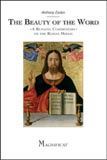 The Beauty of the Word: A Running Commentary on the Roman Missal
The Beauty of the Word: A Running Commentary on the Roman Missal
by Anthony Esolen
Why a new translation of the Roman Missal? Why the new responses at Mass?
Guided by Anthony Esolen, a master translator and professor of literature, you'll go deep into the meaning of each part of the liturgy. Esolen explains the importance of this new translation, and provides context, scriptural references, notes which reference the original Latin text, and more.
This is a must-have guide for unlocking the riches of the newly implemented and newly translated Roman Missal. The Beauty of the Word gives a comprehensive, step-by-step commentary to the changes in the Order of Mass (including Prefaces), the Proper of Time, and the Proper of Saints.
The unique insights found in this book give the reader a full understanding of the scriptural, liturgical, linguistic, and pastoral rationale of the revised Missal.
Anthony Esolen is a professor of English at Providence College. Professor Esolen is the translator of Dante's Divine Comedy (3 volumes, Random House), Tasso’s Jerusalem Delivered (Johns Hopkins University Press), and Lucretius' On the Nature of Things (Johns Hopkins University Press).His most recent book is Ten Ways to Destroy the Imagination of Your Child (ISI Press).
August 20, 2012
"Restless Heart" premiere set for CMN Trade Show
First feature film on St. Augustine will debut at showcase Catholic media event
SAN FRANCISCO, Aug. 20, 2012 – Ignatius Press announces the American premiere of RESTLESS HEART: The Confessions of Augustine on Aug. 29 during the 2012 Catholic Marketing Network (CMN) Trade Show, which will be held at the Arlington, Texas, Convention Center. The premiere will begin at 8:45 p.m. on Wednesday, Aug. 29. It will be held in the Champions Ballroom of the Sheraton Hotel, which is adjacent and connected to the Convention Center.
“We hope that many who watch this inspiring human drama will allow themselves to be found by the Truth and in return also find Love,” Pope Benedict XVI said, after viewing this European production, the first feature film on the life of one of Christendom’s most beloved saints.
RESTLESS HEART is based on St. Augustine’s The Confessions; the film tells his amazing story in his own words! In conjunction with the American release of this important work,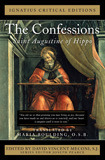 Ignatius Press has published a special edition of The Confessions as part of the Ignatius Critical Editions series, complete with commentary, essays, and footnotes by experts on Augustine.
Ignatius Press has published a special edition of The Confessions as part of the Ignatius Critical Editions series, complete with commentary, essays, and footnotes by experts on Augustine.
“RESTLESS HEART is amazing,” Ignatius Press President Mark Brumley said. “It is one of the most moving stories of conversion and reconciliation ever brought to the big screen, and Ignatius Press is honored to have a chance to premiere the film at the CMN show. We are thrilled to offer this film to America.”
Ignatius Press has developed a unique hosted-screening program that gives parishes, organizations – even individuals – the opportunity to bring St. Augustine alive on the big screen in theoir town, and in the venue of their choice. “We look forward to working with parishes, organizations – even individuals – the opportunity to bring St. Augustine’s life to as many peope as possible,” said Ignatius Press Director of Marketing Anthony Ryan. “This is a tremendous opportunity to launch the Year of Faith and engage in the New Evangelization.” Ryan is hosting the premiere at CMN, and will be available for interviews throughout the event.
The first two hosted screenings have very special meaning, and will occur before the official premiere of the film at the CMN show. The Colorado Catholic Herald and Aquinas and More Catholic Goods will host RESTLESS HEART at 7 p.m. on Aug. 22 in Colorado Springs to benefit Catholic Charities of Central Colorado. The screening will be in the Lon Chaney Theater inside City Auditorium in downtown Colorado Springs.
On Aug. 28 – the Feast of St. Augustine – the Augustine Institute will host a special screening of RESTLESS HEART in Greenwood Village, Colo. Other hosted screenings already are being finalized in San Antonio, Texas, and Washington, D.C. Ignatius is offering the opportunity to host screenings of the film through late November.
RESTLESS HEART provides a historic backdrop and one of the Church’s most beloved and well-known saints – Augustine of Hippo – as its central character to tell a familiar story – as timely today as it was only a few generations after Jesus walked on Earth. It is the story of one who pursues fame and fortune without a moral compass – and the changes that occur when events lead him to see the light. It also chronicles the collapse of the Roman world and how Augustine laid the intellectual foundations of what became Europe.
An exclusive, extended trailer of the film is available online now at www.RestlessHeartFilm.com. For more information or to schedule an interview with Ignatius Press Director of Marketing Anthony Ryan before, during or after the CMN Trade Show, please contact Tim Lilley (678-990-9032 or email TLilley@MaximusMG.com) or Kevin Wandra (678-990-9032 or email KWandra@Maximusmg.com) of The Maximus Group.
To bring RESTLESS HEART to a theater in your area with a hosted screening, please contact Victor Pap of The Maximus Group at 678-990-9032 or email VPap@MaximusMG.com.
• For more information, visit the film's website, www.RestlessHeartFlim.com. Here is the extended trailer for the film:
Carl E. Olson's Blog
- Carl E. Olson's profile
- 20 followers



